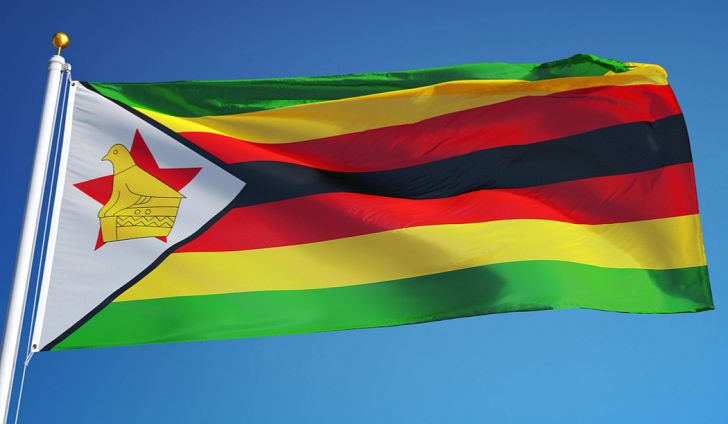US Surgeon General claims more people of colour arrested since legalisation
US Surgeon General Jerome Adams indulged in some quasi-Orwellian nonsense this week when he claimed on Twitter that the legalisation of adult-use cannabis had led to more people of colour being arrested.
The Surgeon General is the operational head of the US Public Health Service Commissioned Corps, the leading spokesperson on matters of public health in the federal government. Their position obviously grants them the ability to influence – and manipulate – millions of people.
This outrageous claim is simply untrue. In Colorado, for example – and this is according to a report by the state Department of Public Safety – cannabis-related arrests decreased by 52% between 2012, the year voters legalised recreational marijuana, and 2017
“The number of marijuana arrests decreased by 56% for Whites, 39% for Hispanics, and 51% for Blacks,” according to the Colorado report.
Figures from other states tell the same story. There are far fewer people arrested for an activity that is no longer a crime – a fact that is true across racial lines.
What hasn’t changed much is the racial disparity of arrests. But Adams clarified that this was not what he meant.
Turns out Adams, who was appointed by Donald Trump, gets his ‘facts’ from Smart Approaches to Marijuana (SAM), a Washington, DC–based anti-cannabis lobby group
Leafly reports that: “Other spurious claims made by Project SAM or its cofounder, Kevin Sabet, a former official in the Office of National Drug Control Policy—which is not a science-based office but an agency mandated by Congress to oppose marijuana legalization—include the patently false assertion that marijuana legalization leads to fentanyl-laced cannabis, a claim made to Kentucky state lawmakers, and the equally bogus assertion that there is a causal link between marijuana legalization and homelessness
“In 2017, SAM agreed to pay thousands of dollars in fines for violating California campaign finance law after failing to disclose special interests who helped fund the group’s opposition to Proposition 64, which legalized adult-use cannabis in the state.”
Renee M. Johnson, a professor at the Johns Hopkins University Bloomberg School of Public Health, said Adams’s claim about arrests rates seems to rest on an assertion made by SAM regarding arrest rates specifically of black youth. The same can’t be said with respect to all black people, nor all people of colour.
In Colorado, for example, the number of black youth arrested for marijuana – which remains illegal for minors – increased from 205 in 2012 to 324 in 2014. Yet even that claim falls victim to the fact that state data was incomplete. A footnote in the report explicitly says as much, though Adams’s tweet omitted that detail.
In Denver, where most black people in Colorado live, data painted a different picture. Police there reported that arrests of black youth plummeted by 75%.
“The data should not be reported without those caveats,” Johnson told Leafly. “Nonetheless, SAM evidently passed on the slide to the Surgeon General, and it was posted on Twitter. As a matter of routine, if you give data to someone impactful like a Surgeon General it should be triple checked for accuracy and complete notation.”
Switzerland may let 5,000 people use cannabis legally for studies

Switzerland may let up to 5,000 people smoke cannabis legally in pilot studies that may influence the country’s future approach to how cannabis is regulated.
The Federal Health Office said that the suggestion will be put to the public until the middle of the year. If the response is positive the pilots will go ahead.
Prohibition in Switzerland dates back to 1951, with only products of less than 1% THC presently permissible to produce and sell. Some 200,000 people in Switzerland use illegal cannabis, the government estimates, despite its criminalisation
The blocking of the University of Bern from undertaking a scientific study has spurred the potential change of direction.
“Without undermining the general cannabis prohibition, we need to be able to test new regulation models under the current situation,” the government said in a statement. “Cities point to the negative impact of current laws, illegal trade in public places that is increasingly disruptive and makes people feel unsafe, and resource-sapping efforts to curb drug sales in urban areas.”
Zimbabwe grants licenses to 37 cannabis investors

Zimbabwe’s government has approved licences for 37 investors to produce and trade cannabis for scientific and medicinal reasons. Around 150 foreign and local investors have indicated interest, so more licences could follow.
Zimbabwe legalised the use of cannabis for medicinal and scientific use in April 2018, becoming the second African country to do so after Lesotho.
Epidiolex brings in millions for GW after US roll out

The release of Epidiolex onto the US market boosted GW Pharmaceuticals stocks hugely – outstripping forecasts by some margin – in the fourth quarter of 2018. Revenues were up 66.7% to $6.7m, beating analyst estimates by $1.35m
GW said that the first plant-derived cannabinoid pharmaceutical ever approved by FDA, approved to treat Dravet syndrome, a form of epilepsy, resulted in net sales of $4.7m from 1 November to 31 December.
The joys of turning the human right to access to medicine into a corporate racket…




